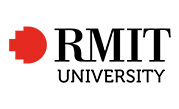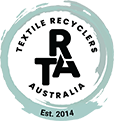Education is the
key to change
Textile expert advice
We learnt the rag trade from the ground up.
This experience grounds us as we humbly teach fashion and textiles students the importance of designing with the end of life solutions in mind. But it doesn’t stop there. We think education about textile recycling is essential in the younger years. To help educate the next generation on how we embrace sustainable fashion and a circular economy. Providing schools with the education and actions to help tackle textile waste.
University and tertiary programs
TRA supports facilitators of university and tertiary programs of sustainability, social and waste stream services. In Sydney and Melbourne TRA offers site visits for students.
Panel and expert round tables
With over thirty years experience in both fashion technology and industry knowledge TRA can provide holistic and commercial information to support the circular economy in textiles.
Our partners
Working with educators to support textile sustainability









